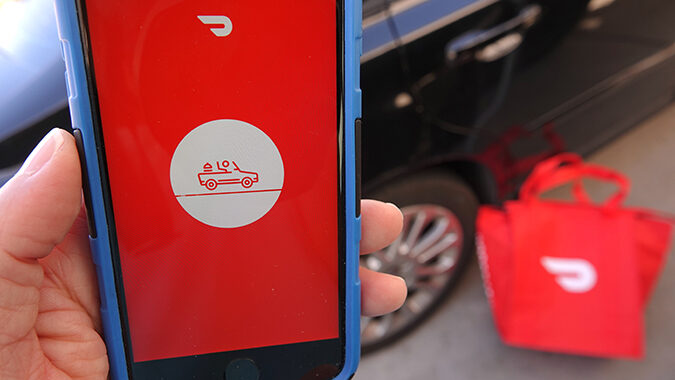Bars, restaurants and liquor stores will soon be able to contract with authorized third-party delivery services to bring alcoholic beverages, including cocktails-to-go in sealed containers, directly to customers’ homes, according to the state attorney general’s office.
The Division of Alcoholic Beverage Control (ABC) issued a special ruling Friday that will allow delivery services to enter formal agreements with restaurants, bars, and liquor stores to make deliveries on their behalf. The application for a third-party delivery permit will be available on the Division’s licensing system, POSSE, beginning on or around Oct. 1, 2022.
ABC Director James Graziano called the decision a “game-changer for New Jersey’s alcoholic beverage industry and a tremendous opportunity for growth.”
ABC Special Ruling 2022-15 cites the need to adapt to modern technology and e-commerce, noting that regulators in at least 15 other states already allow alcoholic beverage deliveries by third-party services, such as DoorDash and Instacart.
“The demand for delivery services exploded during the COVID-19 pandemic and the third-party delivery permit expands that market in New Jersey and allows retail licensees to tap into it,” acting Attorney General Matthew Platkin said in a statement.
The permit will cost $2,000 annually and enable third-party delivery service workers using their personal vehicles to deliver alcoholic beverages to customers’ residences on behalf of New Jersey bars, restaurants, and liquor stores that all operate under retail licenses. Businesses that operate under manufacturing licenses – such as craft breweries and distilleries – cannot use a third-party delivery service, the ABC said.
Third-party delivery services will be allowed to charge retail licensees they contract with and/or customers a pre-determined fixed fee for delivering alcoholic beverages to residences. No deliveries will be permitted to college or university campuses, nor to anyone in a private home who is under the legal drinking age of 21.
Graziano said third-party delivery permits would have “appropriate safeguards to ensure orderly, controlled verifiable and accountable deliveries of alcoholic beverages.”
As part of the permit application procedure, third-party delivery services must detail operating protocols, including procedures for:
- conducting initial and recurring background checks of delivery workers, including criminal history and driving record;
- providing alcohol-compliance training and certification to delivery workers who are eligible to deliver alcoholic beverages;
- verifying that receiving customers are of legal age and not visibly intoxicated; and
- refusing delivery and returning alcoholic beverages to retail licensees when necessary, such as when a customer is underage or intoxicated, refuses to sign for the delivery, or there is there is reason to suspect the customer is accepting delivery on behalf of an underage person.
Delivery workers will also be prohibited from leaving alcoholic beverages unattended, storing alcoholic beverages overnight, or subcontracting a delivery of alcoholic beverages.

